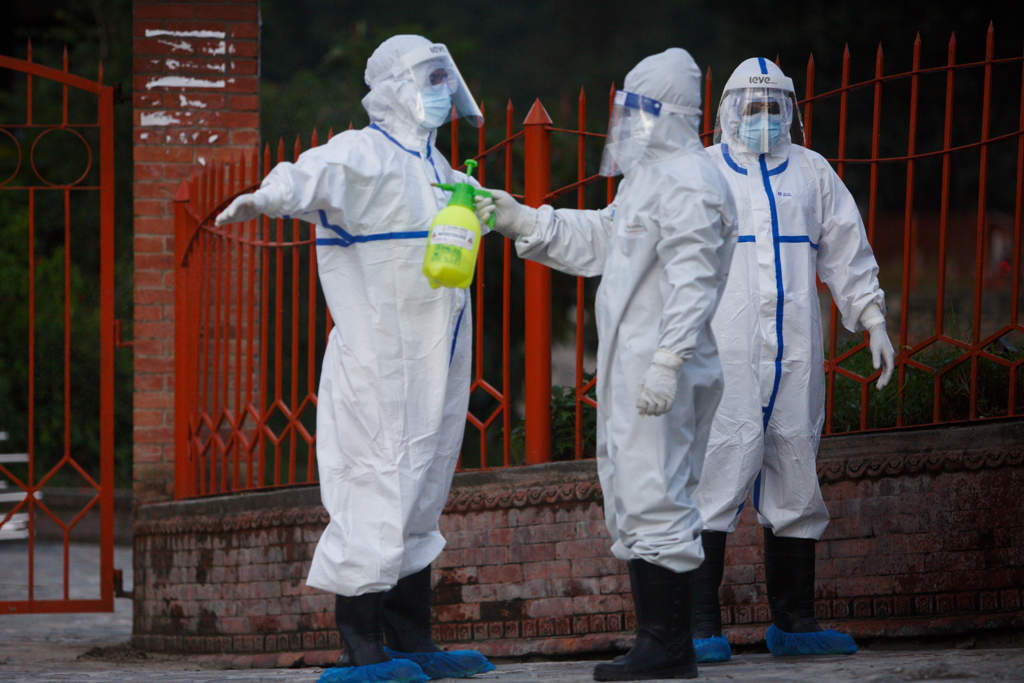

Nepal has a surfeit of coronavirus vaccines now (IANS)
<p>
Nepal has been one of the swiftest countries to procure the coronavirus vaccines for its citizens, faster than it is able to give them the jabs.</p>
<p>
Of the two million Covishield vaccines it purchased from the Pune-based Serum Institute of India (SII), one million have already arrived in the Himalayan country this Sunday. The other one million are likely to arrive very soon. Nepal was able to get these vaccines at subsidised rates with help from the Government of India.</p>
<p>
Now the worry for Nepal health officials is that its vaccines are accumulating faster than it is able to utilise them. The rate of giving the vaccines to targeted groups–frontline workers, health supporting staff, ambulance drivers, people in old age homes and others–is going slowly.</p>
<p>
Nepal had begun its nation-wide vaccination campaign on January 27, after it had received one million vaccines from India as a gift. Of those, it has already administered 4.3 lakh doses to its targeted population. Yet, experts feel that this pace of giving the jabs needs to be speeded up.</p>
<p>
<a href="https://kathmandupost.com/health/2021/02/23/government-crunching-numbers-to-make-vaccination-drive-effective"><em>The Kathmandu Post</em></a> reports that the government may even ask the World Health Organization (WHO) to supply vaccines under its COVAX facility at a deferred date. WHO and other international health organisations, which were worried about smaller countries not being able to access the vaccines, had launched the facility to ensure that people in the developing world also get the vaccines on time to be able to stem the spread of the virus globally.</p>
<p>
The country is on the verge of getting at least 2.25 million doses of Covishield in the first phase from WHOs COVAX. With Nepal&#39;s proactive action in getting the vaccines for its people, it is currently dealing with larger numbers than it is able to administer.</p>
<p>
Even though the country is on track to launch its second phase of vaccination on March 7, even that is not going to help the country consume its three million vaccines in time – unless it ramps its vaccination programme quickly.</p>
<p>
And, herein lie the numerous challenges for Nepal.</p>
<p>
The expiry for coronavirus vaccines is a mere six months. It is within that time frame, actually less than that, during which Kathmandu will have to finish administering its vaccines. And it is here that it is lagging.</p>
<p>
The other worry is that Nepal has the two-phase elections slated on 30 April and 10 May, though the latest supreme court interventions may not allow that. The elections pose a worry much administrative time and energy will be lost in the campaigns and the run-up to the elections. In normal conditions, that manpower could have been used effectively in the vaccination campaign.</p>
<p>
Another challenge for Nepal is that the virus is unpredictable – constantly mutating and changing. The new strains of virus have managed to reach Nepal as well. Now, neighbouring India seems to be headed towards the second wave, which is becoming a cause for worry for Nepal.</p>
<p>
Experts and doctors are aware of where Nepal stands. <em>The Kathmandu Post </em>quoted Dr Janak Koirala, an infectious disease expert, as saying: &quot;We should use all our strength to speed up the immunisation process. We should not forget that we have to immunise a large number of people and the risk of a new wave of infection is not over.&rdquo; One way out of the situation is to request for support from Indian health workers, whose presence could just about ease Nepal&#39;s shortage of personnel.</p>
The US Department of State, during its press briefing, addressed the questions on the rise…
The team of Indian Army's Field Hospital deployed in Mandalay under Operation Brahma returned to…
Defence Secretary Rajesh Kumar Singh visited Rome from April 14-15, 2025, to strengthen India-Italy defence…
India has rejected as "motivated and baseless" comments made by Pakistan on the Waqf Amendment…
Sudanese Ambassador to India, Mohammed Abdalla Ali Eltom, expressed profound gratitude for the humanitarian aid…
Indian and American trade delegations are set to begin discussions on a Bilateral Trade Agreement…